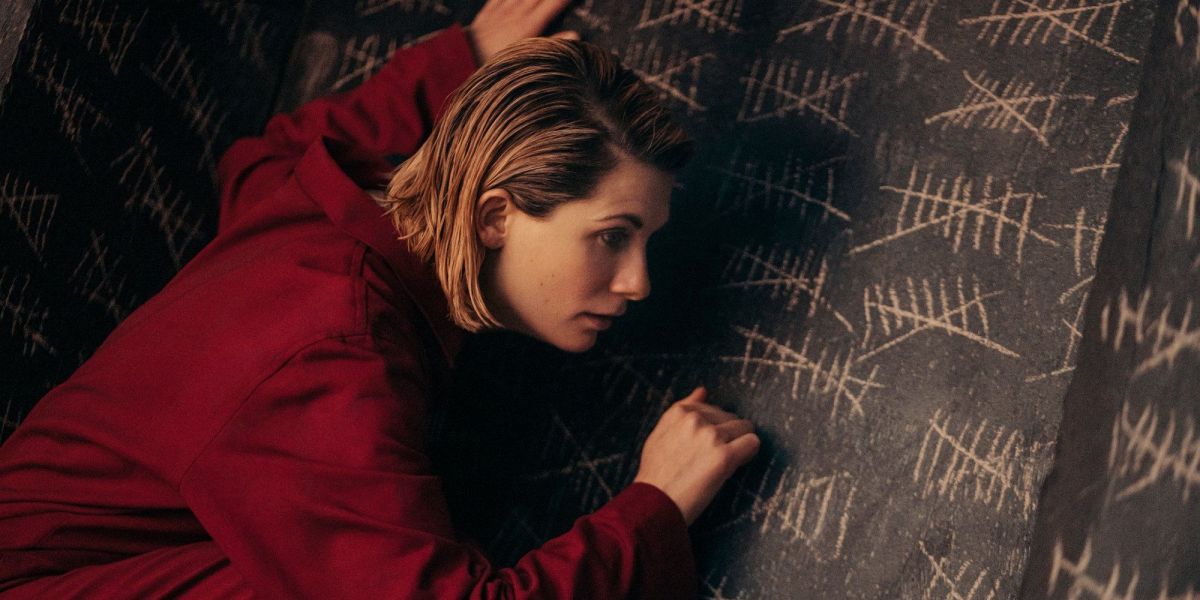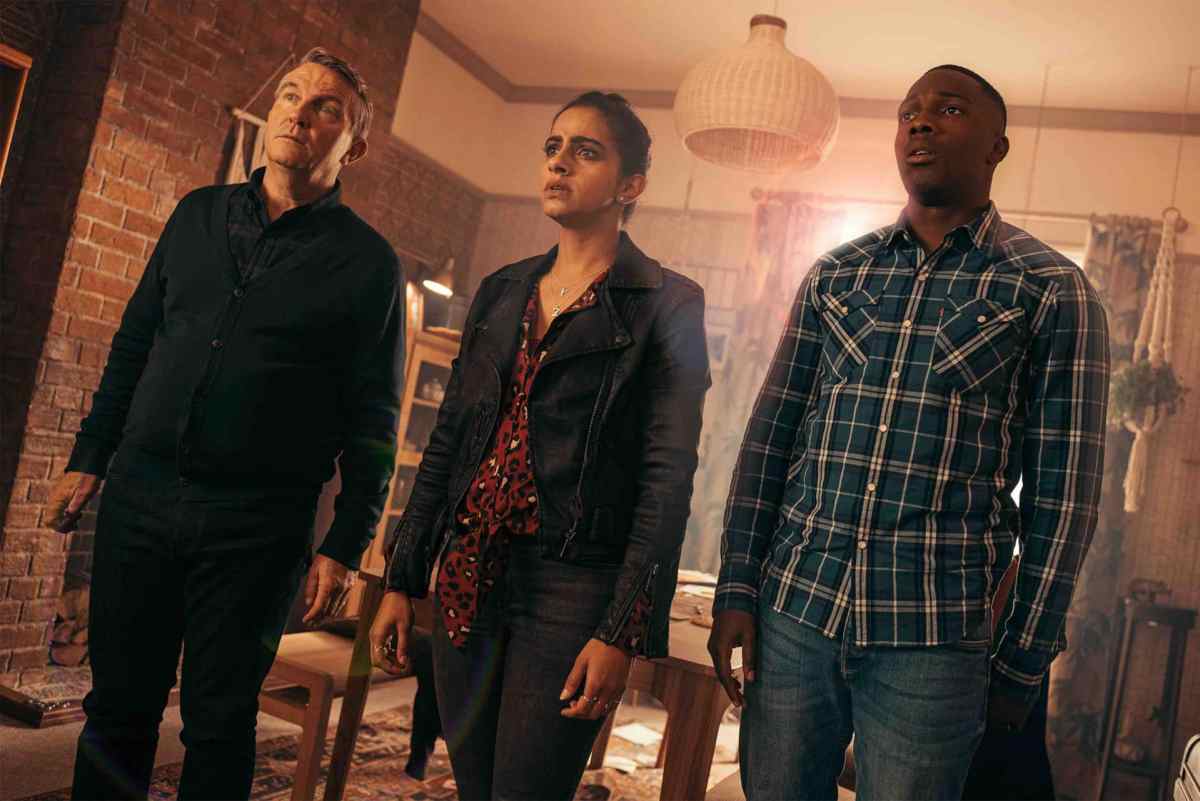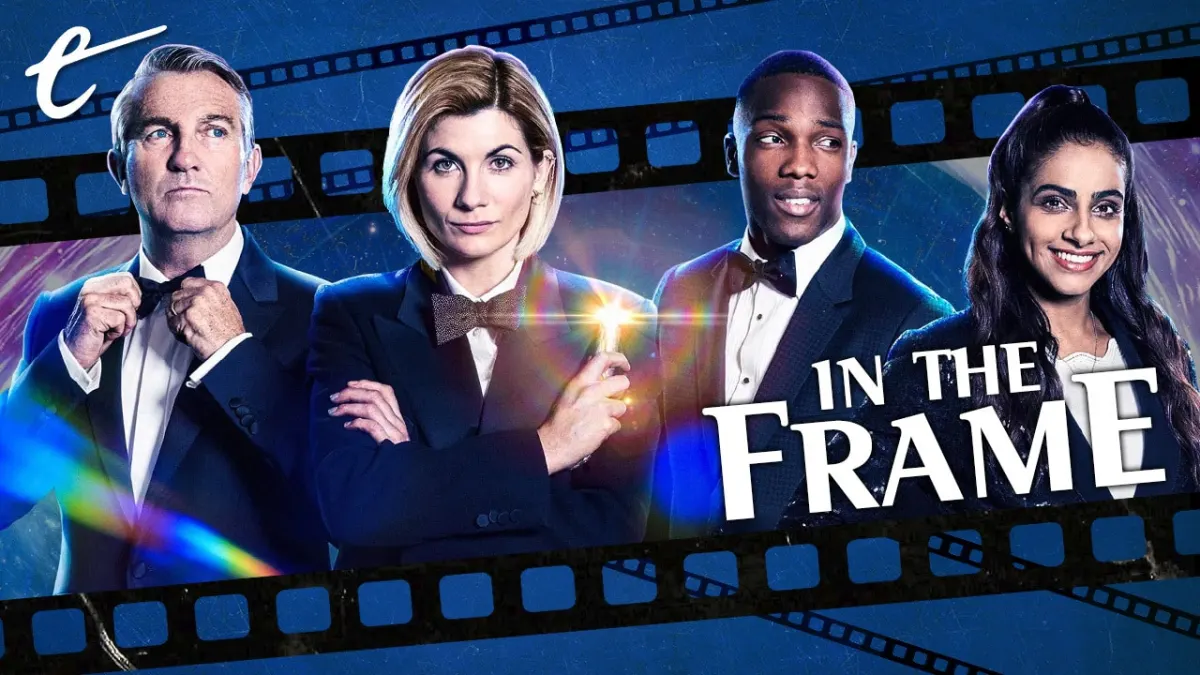With rumors circulating that Jodie Whittaker may depart the lead role at the end of her third season, it seems right to reflect upon her time in the TARDIS. In particular, one of the most revealing and interesting aspects of that time: the persistent criticism that the show’s recent seasons have been “too woke” or “too politically correct.” It’s interesting to think about what those phrases mean, particularly in the context of the most conservative stretch of Doctor Who in over three decades.
The recent seasons of Doctor Who overseen by Chris Chibnall have been criticized in some quarters for being more radical than the ones that came before. This is a frequent attack in the British tabloids; The Telegraph called it “flat, worthy and woke,” while The Sun ran stories about the show’s “unbearable political correctness.” Former Top Gear host Jeremy Clarkson complained that the show was pushing “Lefty dogma,” even though he hadn’t watched Doctor Who “since [he] was a small boy.”
Of course, the recent arguments about the politics of Doctor Who are just part of a larger culture war. This war has encompassed other franchises like Star Trek and Star Wars. As with criticisms of the perceived liberal bias of recent entries in the Star Wars or Star Trek canon, criticisms of this recent relaunch of Doctor Who betray a complete lack of awareness of the franchise’s history. After all, Star Trek has long been a socialist utopia while the original Star Wars was an anti-Vietnam War film.
Naturally, the politics of Doctor Who have shifted over the years. However, the show has been openly radical at several points in its own history. When script editor Andrew Cartmel took over the series in 1987, he planned to use it “to overthrow the government.” Thatcher became a target for the show in stories like “The Happiness Patrol,” and the impact of Thatcherism on Britain was the subject of the original run’s last story, “Survival.”
When the show returned to television in 2005, producer Russell T. Davies upped the ante. “Aliens of London” found the prime minister, who was intended to resemble Tony Blair, murdered and shoved in a cupboard as the show railed against the march to the Iraq War. The ghost of Tony Blair would resurface in “The Sound of Drums” when the villainous Master (John Simm) reinvented himself as a populist politician, who was complicit in mass murder and attempted conquest.

Steven Moffat — Davies’ successor — was less directly provocative, but he offered a similarly scathing take on Britain’s electoral politics in his second script as showrunner. In “The Beast Below,” the Eleventh Doctor (Matt Smith) opines, “Once every five years, everyone chooses to forget what they’ve learned. Democracy in action.” Under Moffat, the fascist Daleks reinvented themselves as parliamentary democracy in “Asylum of the Daleks.”
After all, it was Moffat who first confirmed that Time Lords could change gender during regeneration — first in his comedy special “The Curse of Fatal Death” and then in Neil Gaiman’s “The Doctor’s Wife” during his tenure as showrunner. Moffat revealed the Master regenerated into “Missy” (Michelle Gomez) in “Dark Water” and wrote the first in-continuity male-to-female regeneration in “Hell Bent.” The regeneration from Peter Capaldi to Jodie Whittaker did not come from nowhere.
In contrast, the Thirteenth Doctor (Whittaker) has been less aggressively proactive than her predecessors. The Tenth Doctor (David Tennant), in another allusion to Margaret Thatcher and the Falklands War, toppled the U.K. government on a whim in “The Christmas Invasion.” The Eleventh Doctor aggressively rewrote the history of Kazran Sardick (Michael Gambon) in “A Christmas Carol” when he refused to help save the lives of thousands of people.
In contrast, the Thirteenth Doctor has struggled to hold authority figures to account. The Doctor witnesses characters like Jack Robertson (Chris Noth) and Daniel Barton (Lenny Henry) endanger billions of lives and just lets them walk away. However, it runs deeper than that. The Thirteenth Doctor is much less willing to upset the status quo than her immediate predecessors, even when that status quo is manifestly unjust.
In “Planet of the Ood,” the Tenth Doctor chastises himself for failing to consider the suffering of a slave race in an earlier adventure, becoming embroiled in a brutal slave revolt to overthrow the humans who have been exploiting the Ood. In “Oxygen,” the Twelfth Doctor (Capaldi) finds himself taking on and dismantling late-stage capitalism. These are radical ideas. In contrast, “Kerblam!” finds the Thirteenth Doctor saving space Amazon while insisting that “the systems aren’t the problem.”

In “Thin Ice,” the Twelfth Doctor sternly lectures his young black companion Bill (Pearl Mackie) about the importance of not being provoked by racists, before punching a racist in the face himself. It’s a self-aware joke about the privilege the Twelfth Doctor enjoys as a white man. In contrast, “Rosa” finds the Thirteenth Doctor earnestly making her companion Graham (Bradley Walsh) complicit in systemic racism, preferring to allow change to happen at its own historically predetermined pace.
To be fair, there is an argument to be made that the Thirteenth Doctor places a premium on the idea of observing and witnessing, expanding the longstanding metaphor of the TARDIS as a television set. This argument is best articulated in the episode “Demons of the Punjab,” in which the Thirteenth Doctor is mirrored with the eponymous demons. They are a race of former assassins transformed into passive observers, witnessing but not interfering — watching and learning.
Still, there’s a strong deference to authority that runs through the Chibnall era. The show has historically treated the TARDIS’ appearance as a police box as a wry joke, with the Twelfth Doctor even mocking Clara (Jenna Coleman), “I’m not actually the police; that’s just what it says on the box.” In contrast, the Chibnall era embraces the police box unironically as a mission statement, unsurprising for the writer who oversaw Law & Order: UK and created Broadchurch.
With the departure of Graham and Ryan (Tosin Cole) in “Revolution of the Daleks,” the Thirteenth Doctor’s longest-serving companion becomes Yasmin Khan (Mandip Gill). Yaz is a police officer, and episodes like “Praxeus” suggest that Yaz might be the companion most likely to be “her equal.” In “The Timeless Children,” Chibnall even suggested the Doctor herself was a police officer, that a secret earlier incarnation imagined themselves as the Irish Garda Brendan (Evan McCabe).

While stories like “Fugitive of the Judoon” and “Revolution of the Daleks” are perhaps more skeptical of law enforcement, the Chibnall era lacks the contempt for authority figures evident in the Tenth and Twelfth Doctors’ long-standing mistrust of soldiers and politicians. If anything, the content of Doctor Who is much more conservative and much less activist than it has been at any point since 1987. So, where do these criticisms of being “too woke” or “too politically correct” come from?
The answer would seem to be depressingly obvious: the casting. These charges began when the show swapped from a male lead to a female lead for the first time, as well as when Chibnall made a point of diversifying the ensemble by casting more performers of color. It seems likely that complaints about the show’s “politics” amount to criticisms of this. Of course, as any critic knows, a film or television show that features a female lead is not necessarily feminist.
While Chibnall deserves credit for pushing for more diversity both in front of and behind the camera, the discourse is truly broken if simply putting women and people of color on screen is treated as “political correctness gone mad.” Even then, Chibnall is far from radical. When Graham and Ryan left, it seemed like Doctor Who might have its first entirely female TARDIS crew ever with the Thirteenth Doctor and Yaz, only to immediately announce John Bishop would be joining the show.
In truth, Doctor Who is more conservative than it has been in decades. It respects the police, it tempers the Doctor’s anarchist tendencies, and it largely rejects dramatic systemic or social change. The show arguably hasn’t been more conservative since producer Barry Letts “exiled the Doctor to Earth and made him a Tory” back in 1970. Apparently, in some quarters, merely being a woman or person of color on television is “too politically correct.”





